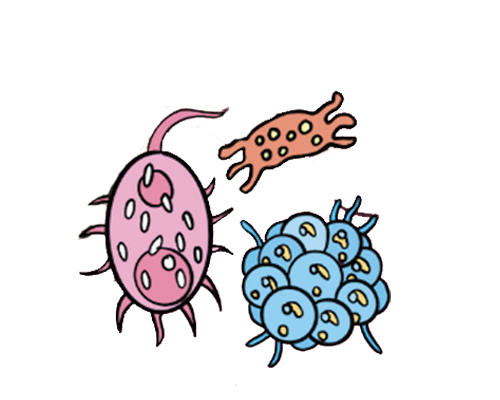
Ensuring Safety and Hygiene for Your Dog and Family
Bacterial Risks in Real Food and Raw Feeding
Raw feeding, which involves feeding dogs raw meat and other animal parts, is a practice that offers numerous nutritional benefits. However, it also comes with specific sanitary concerns. Handling raw meat for dogs requires the same level of care as preparing meals for humans. Dogs fed raw can be messy eaters, leaving remnants of their meal on their face and body, raising concerns about bacteria in their saliva. Additionally, managing their feces is essential, especially if the dog consumes raw meat containing harmful bacteria.
Safe Raw Meal Preparation
To ensure safety, raw meal preparation should follow strict hygiene protocols like those used in human food preparation. Using separate cooking utensils for raw food, including designated cutting boards for meat and vegetables, is crucial. After preparing a raw meal, sanitizing all utensils and the food prep area is necessary to prevent bacterial contamination.
- Use separate utensils for raw food.
- Sanitize all utensils and prep areas after use.
- Designate a specific feeding area for easy sanitation.
Designated Feeding Areas
It's beneficial to designate a specific feeding area for raw meals, as this allows for easy sanitation after each feeding. Raw foods can create a greasy mess, posing a slip hazard, so caution is necessary. Some dog owners prefer feeding their dogs outside, weather permitting, to manage the mess more effectively. For dogs with lots of facial fur, cleaning their face after meals or trimming the fur can help maintain cleanliness.
- Designate a specific feeding area.
- Sanitize the feeding area regularly.
- Feed dogs outside if possible to manage mess.
Raw Feeders vs. Kibble Feeders
Interestingly, raw feeders tend to be more diligent about sanitation than kibble feeders. Raw feeders often sanitize their dog’s feeding area and utensils daily, while kibble feeders might reuse the same bowl and scoop without thorough cleaning between feedings. This extra effort ensures a cleaner and safer environment for the dog and its human family.
Dogs' Natural Defenses
Dogs have natural defenses that help them maintain a balance of good bacteria while eliminating harmful ones. Their saliva contains lysozyme, an enzyme that destroys bacterial cell walls, reducing the risk of bacteria like E. coli in their mouth. The beneficial bacteria in their mouth aid digestion and fight disease-causing germs, while lactic acid produced by some strains lowers saliva pH, preventing the growth of harmful microorganisms. Additionally, the highly acidic environment in their short intestinal tract, with a pH range ideal for digestion, prevents the passage and growth of Salmonella.
Tips for Preventing Contamination
- Sourcing of Meal Components
- Provide high-quality meat from reputable sources.
- Look for products certified organic by a recognized authority.
- Prefer local farms over grocery food chains.
- Food Preparation and Area Sanitation
- Designate a specific area for food prep.
- Use separate utensils for raw food prep.
- Sanitize all equipment and the entire food prep area after use.
- Keeping Your Dog and His Area Clean
- Feed your dog in a designated area and sanitize it regularly.
- Wash your dog’s face after each meal.
- Keep your yard clean by removing feces daily.
Supporting Your Dog’s Immune System
A dog with a healthy and fully functional immune system can maintain the balance between beneficial and harmful bacteria, which is key to overall health. Supporting a healthy immune system requires providing all the nutrients a dog needs. With the proper dietary components, a dog’s gut microbiome will flourish with beneficial bacteria and maintain a balance with harmful microorganisms.
- The ideal fresh food diet, the Real Ancestral 6X Diet™, contains the following six components:
- 10-12% Raw meaty bones
- 63-65% High-quality muscle meat
- 10% Seafood
- 5% Liver
- 5% Other secreting organ
- 5% fur or fiber



